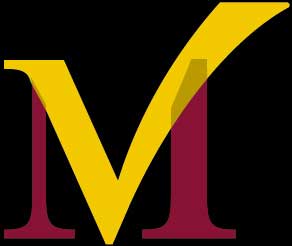From the beginning of the 19th century, and particularly after the liberation of Greece, the Patriarchate of Constantinople became the principal medium for Greek national propaganda activity in Macedonia. The Patriarch Gregory V, for example, in 1860 and again in 1819 dispatched circular letters to all metropolitan dioceses in Macedonia with the request that they propagate the Greek language and Greek education among Christians. In other words the Patriarchate was building into its program a new, and extremely important, item: Graecization of the non-Greek Christian Peoples. In accordance with this policy it declared the entire Orthodox population of Macedonia to be Greek, regardless of Ethnic origin. The Patriarchate, however, which was wholly in the service of Greek interests, was not amenable to the use of the vernacular language in either churches or schools, since it feared that if this were realized virtually the whole non-Greek orthodox population would be lost to the Greek nationalist cause. This cause, known as the “great idea”, had become the banner of Greek expansionism in the Balkans and was expanded to the Greek assembly in 1844 by the Greek Prime minister Koletis. It envisaged the expansion of the Greek state to Constantinople and into Asia Minor (Nikos Svoronos, Episkopisi tis neoelinikis istorias, II, Athens, 1976, 84).
But the way led through Macedonia, and Macedonia, while having been proclaimed by the Greek ruling circles as “most Greek”, was bound to Graecism by the church alone. Now, especially after the establishment of the new Slav Orthodox church (the Bulgarian Exarchate, 1870) a great many Macedonians and Vlachs began to leave the Greek church.
The Universal Patriarchate declared the Exarchate schismatic. An anathema was cast on all believers who left the Greek church and this intimidated the majority of Macedonians. This was the main reason why very many of them remained in the “church of their forefathers”. Various societies organized by the central sylloges in Constantinople and in Athens, and with significant funding from the Greek government, intensified their activities on Macedonian soil, opening and supporting various clubs, schools, hostels, and hospitals. With the assistance of the Greek consuls, the metropolitans were active in Macedonian villages, where they opened many schools, simultaneously spreading the network of the church and corrupting village leaders with the aim of winning their villages over to the Patriarchate. All of this had one single aim: to make “Greeks” of the Macedonians and to have arguments they could place before Europe to prove the “Greek” character of Macedonia and their “right” to it.
The fact that they were unable to achieve schools and various other instruments of propaganda was left for statistics to deal with. A supposed increase in the number of Greek schools, with no foundation in fact, led to the false conclusion that there was a numerical superiority of Greeks in Macedonia. Figures were published which were intended to demonstrate that the Greek element in Macedonia greatly surpassed that of the other Orthodox, etc.
In 1904 the French diplomatic representative in Salonica, M. Stegue, reckoning the Greek statistics to be extremely unreal, wrote among other things that of 130 000 Slav members of the Patriarchate in the Vilayet, “only about 10 000 could be considered to have been Graecised or to have gained for the Greek party”.
The question of the language was the most delicate for the Greek side. It could not be concealed nor could it be “explained”. The Macedonians were variously styled: “Slavophone Greeks”, “Miktogloss Greeks” or “Bulgarophone Greeks”. The following explanation was constructed in support of this: the Greek Language in Northern Macedonia had, in the course of time, supposedly suffered many admixtures that a “Helleno-Slavophone dialect” had developed which consisted of Greek, Latin, Slavonic and little Bulgarian (Filipidis Dim, I Makedonia-istorikos, entologikos, stratiotikos, en Athines, 1906, 36-7).
The most striking proof of the failure of the Greek policy of making Greeks of the Macedonians and of the Vlachs was the Ilinden Uprising of 1903. In the very place where a significant number of Macedonians recognized the Greek Patriarch, in the Kostur and Krushevo districts, the uprising was most widespread, most dynamic and achieved the greatest results. The Uprising was therefore declared to be an anti-Greek action by the Greek side.
Once it had been recognized in Athens that Macedonia could not be made Greek through the means of the church and schools, it was decided to supplement the old methods with force of arms. From the autumn of 1904 Greek bands, formed and armed in Greece and led by officers of the Greek army, began systematically to enter Macedonia to put the Greek Government’s program into practice: to compel the Macedonian and Vlach population by means of fierce reprisals, guns and knives to return to the rule of the Greek church and to declare themselves Greeks.

Virtual Macedonia
Republic of Macedonia Home Page
Here at Virtual Macedonia, we love everything about our country, Republic of Macedonia. We focus on topics relating to travel to Macedonia, Macedonian history, Macedonian Language, Macedonian Culture. Our goal is to help people learn more about the "Jewel of the Balkans- Macedonia" - See more at our About Us page.
Leave a comment || Signup for email || Facebook |
History || Culture || Travel || Politics














